In the modern world, the traditional career path has evolved significantly. Gone are the days when the ultimate goal for many was to secure a stable job with a reputable company and climb the corporate ladder. Today, self-employment is on the rise, and for good reason.
The Changing Landscape of Work
The landscape of work has undergone a remarkable transformation in recent years. The rise of the gig economy, the advent of remote work, and the proliferation of technology have all contributed to this shift. As a result, more and more individuals are opting for self-employment over the traditional nine-to-five grind.
Let’s delve into why this change is happening and why it might be the right choice for you.
Freedom and Autonomy
One of the most compelling reasons to choose self-employment over job searching is the freedom and autonomy it offers. When you work for yourself, Be your own Boss (BYOB). You have the power to make decisions, set your own schedule, and determine your work environment. The freedom to choose projects, clients, and how to allocate time can be a game-changer in terms of job satisfaction.
Flexibility
Self-employment provides a level of flexibility that is hard to match in a traditional job. You can tailor your work hours to fit your lifestyle, take vacations when it suits you, and adapt to unforeseen circumstances without seeking permission. This flexibility can be especially valuable for individuals with family responsibilities, health issues, or other commitments that require a non-traditional schedule.
Income Potential
Another significant advantage of self-employment is the potential for unlimited income. When you work for yourself, your earnings are directly tied to your efforts and the value you provide to clients or customers. This means that if you work hard, innovate, and build a solid reputation, your income potential is virtually limitless.
Diversification of Income Streams
Self-employment allows you to diversify your income streams, reducing your reliance on a single source of income. Many self-employed individuals have multiple clients or engage in various projects simultaneously, spreading the risk associated with income fluctuations.
In traditional employment, your income typically comes from one source – your employer. If that source disappears due to layoffs, downsizing, or other unforeseen circumstances, you can find yourself in financial distress. Self-employment provides more control and resilience in the face of economic challenges.
Pursuing Your Passions
Self-employment often enables individuals to turn their passions into profitable businesses. Whether you are a freelance writer, artist, consultant, or any other type of entrepreneur, you have the opportunity to build a career around what you love to do. This alignment between your interests and your work can lead to greater job satisfaction and a sense of purpose.

Control Over Work-Life Balance
Achieving a healthy work-life balance is a top priority for many people. Self-employment offers more control over this balance because you can set your own hours and work from anywhere. You can take breaks when you need them, spend time with loved ones, and prioritize your well-being without feeling guilty.
Traditional jobs often come with expectations of long hours and limited time off. Achieving work-life balance can be challenging, and the pressure to constantly be available can lead to burnout and stress.
Learning and Growth
Self-employment is a journey of continuous learning and growth. As a self-employed individual, you wear many hats – from managing your finances and marketing your services to honing your skills and staying up-to-date with industry trends. This diverse set of responsibilities can be intellectually stimulating and personally fulfilling.
In traditional employment, your role may be more specialized, with limited opportunities for skill diversification. While some employers offer training and development programs, they may not match the breadth of experiences you can gain as a self-employed professional.
Build Own Brand
When you’re self-employed, you have the opportunity to build your own brand and reputation. Your success depends on the quality of your work and the relationships you build with clients or customers. Over time, a strong brand can lead to a loyal customer base, word-of-mouth referrals, and greater visibility in your industry.
In traditional employment, your individual brand may take a backseat to the reputation of the company you work for. While you can still build a personal brand within your field, it may be more limited in scope and impact.
Challenges of Self-Employment
While self-employment offers numerous advantages, it’s important to acknowledge that it also comes with challenges. These challenges include irregular income, the need for self-discipline, managing your own taxes, and the absence of traditional employee benefits like health insurance and retirement plans. However, many self-employed individuals find ways to mitigate these challenges through careful planning, financial management, and seeking professional advice.
Here are some examples of self-employment opportunities across various industries:

- Freelance Writing: Many individuals with strong writing skills become freelance writers, offering their services to blogs, magazines, websites, and businesses in need of content. They can write articles, blog posts, marketing copy, and more.
- Graphic Design: Graphic designers often work as self-employed professionals, creating visual content for clients, including logos, branding materials, websites, and advertisements.
- Consulting: Experts in various fields, such as management, marketing, finance, or technology, can offer their expertise as consultants to businesses seeking guidance and solutions to specific problems.
- Photography: Photographers can work independently, offering their services for events, portraits, commercial shoots, and stock photography. They may also sell their work online through platforms like Shutterstock or Adobe Stock.
- Real Estate: Real estate agents often work on a commission basis, earning a percentage of the sale price for each property they help buy or sell. They have the flexibility to manage their schedules and build their client base.
- E-commerce: Entrepreneurs can start online businesses, selling products through platforms like Amazon, eBay, Etsy, or their own e-commerce websites. They source or create products and handle shipping and customer service.
- Web Development: Web developers create and maintain websites for clients. They can specialize in front-end development (user interface) or back-end development (server-side functionality) or offer full-stack services.
- Event Planning: Event planners coordinate and manage weddings, corporate events, parties, and other special occasions. They handle logistics, budgeting, and vendor coordination.
- Coaching and Counseling: Life coaches, career coaches, and counselors provide guidance and support to individuals seeking personal or professional development. They can work one-on-one or offer group sessions.
- Handmade Crafts: Artisans and crafters can sell their handmade products on platforms like Etsy or at local craft fairs. This includes jewelry, candles, soap, clothing, and various other items.
- Home Renovation and Repair: Skilled tradespeople like carpenters, plumbers, electricians, and contractors can start their own businesses, offering home renovation and repair services to homeowners.
- Online Content Creation: YouTubers, podcasters, and social media influencers can monetize their content through advertising, sponsorships, merchandise sales, and crowdfunding platforms like Patreon.
- Tutoring and Online Courses: Educators and subject-matter experts can offer tutoring services or create and sell online courses on platforms like Udemy.
- Pet Services: Animal lovers can start pet-sitting, dog-walking, or pet grooming businesses. They can also offer pet training and behavior consulting services.

In conclusion, in today’s ever-evolving job market, self-employment is emerging as a compelling alternative to traditional job searching. The freedom, flexibility, income potential, and personal fulfillment that come with being your own boss are undeniable advantages. While self-employment is not without its challenges, if you value autonomy, flexibility, and the opportunity to pursue your passions, self-employment may be the path to a more fulfilling and rewarding career.
Writer
Fariha Zannat
Intern, Content Writing Department
Requin BD





9 Comments
truck weighbridge Iraq
December 15, 2024
Revolutionize your weighing needs with BWER, Iraq’s top provider of weighbridge systems, featuring unparalleled accuracy, durability, and expert installation services.
معدات قياس الوزن العراق
December 30, 2024
BWER Company provides Iraq’s leading-edge weighbridge solutions, designed to withstand harsh environments while delivering top-tier performance and accuracy.
Рестраця
March 3, 2025
Thanks for sharing. I read many of your blog posts, cool, your blog is very good. https://accounts.binance.info/en/register?ref=JHQQKNKN
откриване на профил в binance
March 8, 2025
Your point of view caught my eye and was very interesting. Thanks. I have a question for you.
Рестраця
March 11, 2025
Can you be more specific about the content of your article? After reading it, I still have some doubts. Hope you can help me.
www.binance.com-
March 13, 2025
Your article helped me a lot, is there any more related content? Thanks!
free binance account
March 15, 2025
Thank you for your sharing. I am worried that I lack creative ideas. It is your article that makes me full of hope. Thank you. But, I have a question, can you help me?
Crie uma conta gratuita
March 21, 2025
Thanks for sharing. I read many of your blog posts, cool, your blog is very good.
最佳binance推薦碼
March 28, 2025
Thank you for your sharing. I am worried that I lack creative ideas. It is your article that makes me full of hope. Thank you. But, I have a question, can you help me? https://accounts.binance.com/pt-PT/register?ref=DB40ITMB